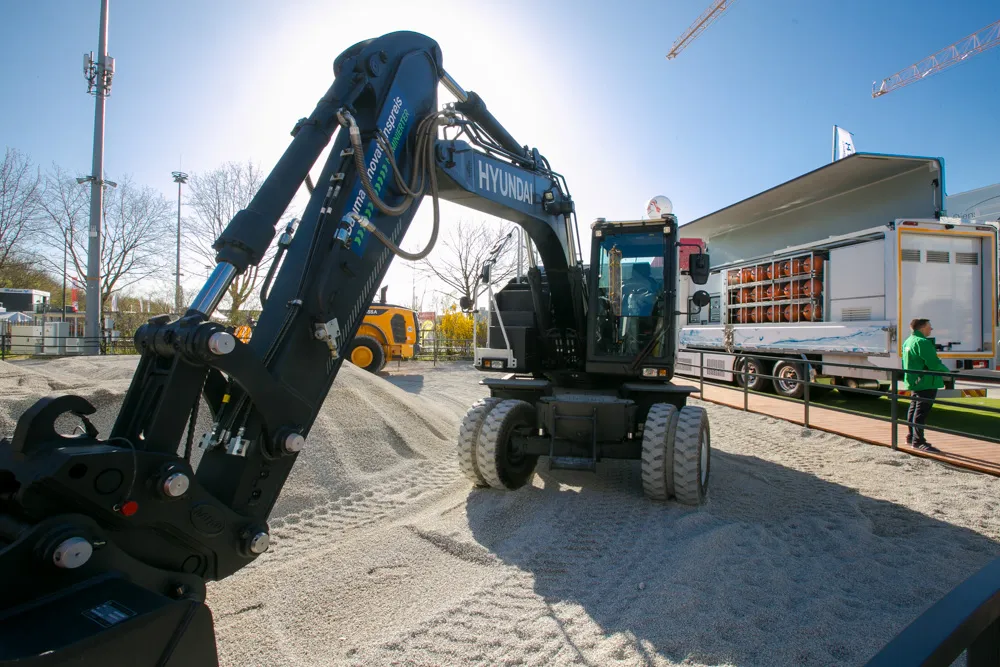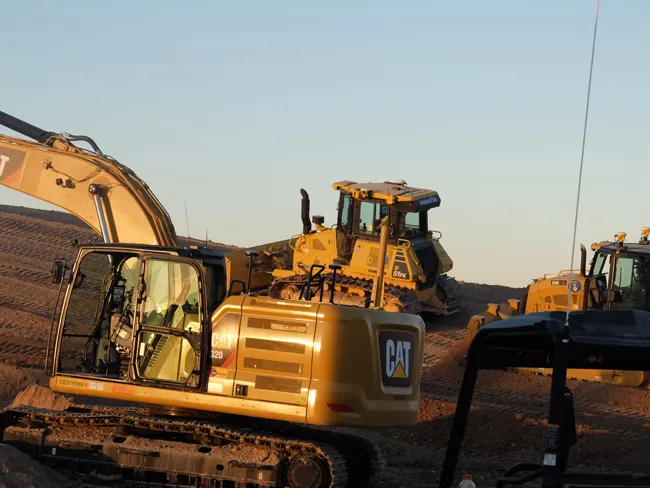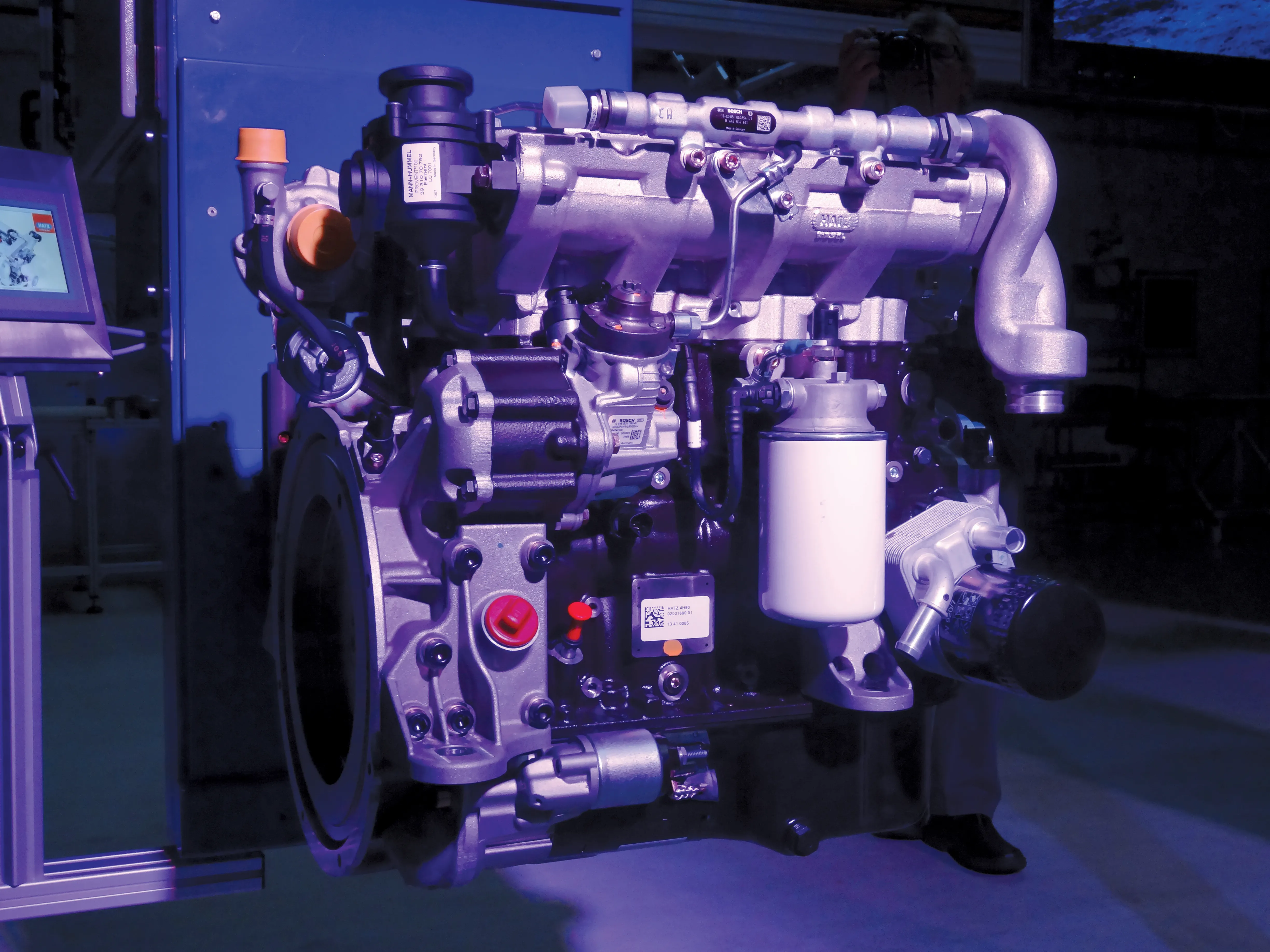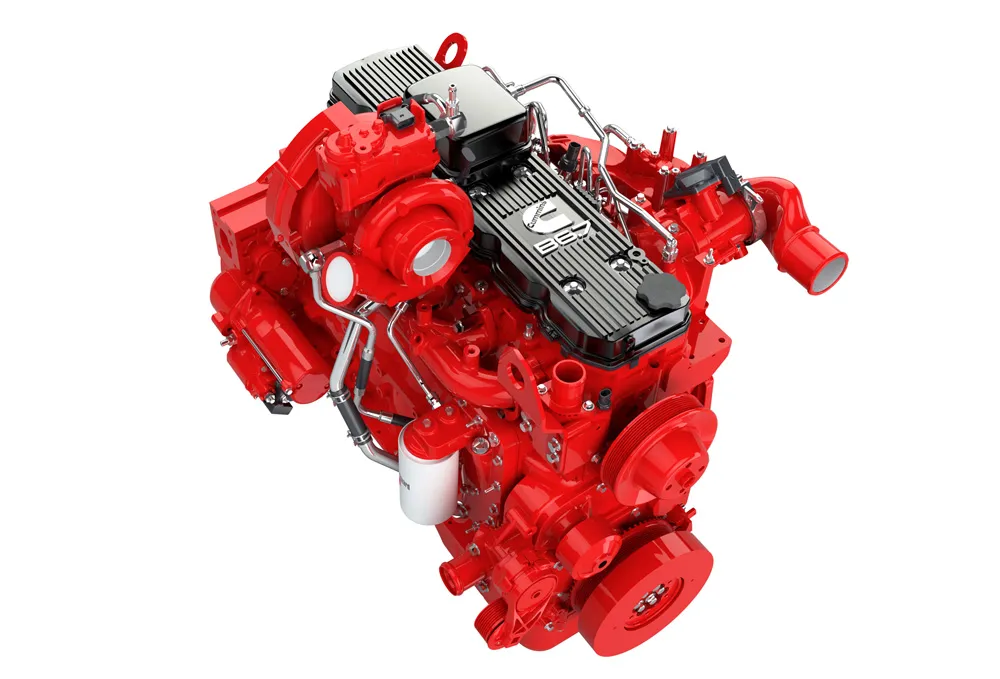
Hyundai Construction Equipment says that its innovative HW155H hydrogen fuel-cell-powered, wheeled excavator is showing the industry how hydrogen could contribute to future carbon-free operation on construction sites. Digging and driving performance is said to match that of conventional diesel-driven machines.
The firm is leading the field with its radical zero-emission solution and according to a company spokesperson, “This machine is not a prototype any more. It is production-ready. But the market is not ready for it yet.”
The fuel-cell machine has been tested extensively in working applications and offers a 12-hour operating time with its onboard fuel storage. However, operating times of up to 17 hours have also been achieved in some duties. The spokesperson continued, “We at Hyundai believe hydrogen will form a part in our future power needs.” And the firm is also ready with internal combustion engines that can run on hydrogen.
Hyundai says that its revolutionary, high-density storage system plays a key role because this can double the capacity of a conventional hydrogen tank, using a lower filling pressure, optimising space within the machine, reducing fill times and improving site safety.
The firm’s novel fuel-delivery truck has also been developed to deliver efficient and fast refuelling, which takes 10-20 minutes.
The project to develop a fuel cell for the HW155H has been a cooperation between Hyundai Construction Equipment and Hyundai Motor Company, which has a range of powertrain solutions for the automotive segment. Two cells have been designed, delivering 30kW and 50kW, with the HW155H using a combination of fuel cells to provide 70-100kW. These fuel cells could be used in a range of machines, with the 15tonne wheeled excavator having been selected by Hyundai to trial the power system.









